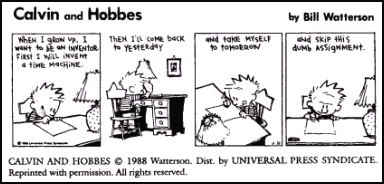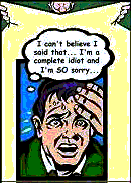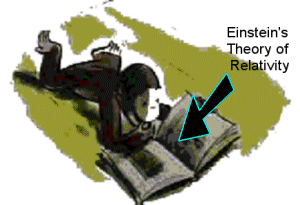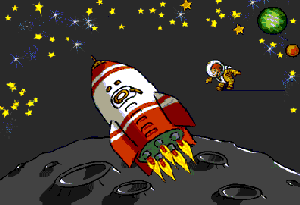- Some Theoretical Considerations
- Psychological Reasons as Literary Motives for Time Travel - Case Studies
- Some Theoretical Considerations
- The Concept of Time in Psychology
 The concept of linear time in psychology is intrinsically related with issues of causality, change, process, and behavior. Especially psychoanalysis works on a cause and effect model, with emphasis on the first event as the most important. Thus, most psychologists, however opposed to Freud's methods, still view past (or childhood) experiences as crucial for the patient's present emotional problems. Brent D. Slife summarizes:
The concept of linear time in psychology is intrinsically related with issues of causality, change, process, and behavior. Especially psychoanalysis works on a cause and effect model, with emphasis on the first event as the most important. Thus, most psychologists, however opposed to Freud's methods, still view past (or childhood) experiences as crucial for the patient's present emotional problems. Brent D. Slife summarizes: "Cognitivists attend to past inputs and memory encodings; many humanists refer to long-lost opportunities for growth; and behaviorists consider reinforcement history and immediately preceding stimuli. All consider some form of the past to have primacy over abnormal, and even normal, behaviors in the present. … The primacy of the past is also carried into psychological treatment. The origin of abnormality is always the target of treatment, explicitly or implicitly."
Given these considerations, is it surprising that our wish to go back into the past is inseparable from our desire of self-knowledge, or from our understanding of what happened then in order to comprehend what is happening now? Does time travel contain an element of self-cure? And eventually: would time travel -- if possible -- make psychologists obsolete?
- Psychological Reasons as Literary Motives for Time Travel - Case Studies
- Escapism

What Bill Watterson renders here jocularly in cartoon form is an important motive of time travel. Escapism, defined by Merriam-Webster's Collegiate Dictionary as "a habitual diversion of mind to purely imaginative activity or entertainment as an escape from reality or routine," constitutes also the psychological motivation for time travel. A relevant example will clarify and support this claim.
In Fast Forward, Jenny Pausacker tells the story of the speedy (and, by all appearances, manic) Kieran, a perpetually bored child, doomed to live in a world too slow for himself. Fortunately, things seem to change for the better, as his grandmother mutates a tedious remote control to an exciting ABM ("the Anti-Boredom-Machine"). His favorite function is, as one may guess, fast forward. Due to it, Kieran engages in a peculiar type of time travel: "When you use FAST FORWARD, life is the same, really--it just looks different to you--FAST FORWARD doesn't make time go faster. It only makes time feel faster."
This seemingly useless form of time travel enables Kieran to escape, at least for a while, boredom and daily routine. Soon, however, as "fast forward" gradually develops into a mania, Kieran fails school and loses his friends. The story does have a happy ending, yet this is not what makes it stand out in the genre of time travel. More importantly, the paradoxical notion of escaping from the present by modifying it instead of transcending it by means of a machine (as in the Calvin and Hobbes cartoon) seems to account for the story's originality.
- Self-Blame
 The motive of self-blame is as central to time travel stories as it is to human existence. Occasionally, we would like to undo things, or to be given a second chance. Spiritually, this is possible - Christianity, for instance, is based on the tenet "forgive and forget." Physically, however, such a wish still remains in the realms of fiction. Once a character is caught in a circle of self-blame and failure with a time travel instrument involved, the narrative becomes predictable, yet the suspense increases exponentially.
The motive of self-blame is as central to time travel stories as it is to human existence. Occasionally, we would like to undo things, or to be given a second chance. Spiritually, this is possible - Christianity, for instance, is based on the tenet "forgive and forget." Physically, however, such a wish still remains in the realms of fiction. Once a character is caught in a circle of self-blame and failure with a time travel instrument involved, the narrative becomes predictable, yet the suspense increases exponentially. Such is the case with Nancy Etchemendy's highly praised children's book, The Power of Un. Its protagonist, Gib Finney, receives from his future self, Old Gib, the "Unner," a time travel machine, which can undo one's mistakes. What at first seems to be lively fun becomes soon deadly earnest, as Gib's baby-sister Roxy is hit by a truck, and consequently rendered brain dead. As one may guess, Gib blames himself for the accident of his sister, who was left in his care.
The narrative is driven by Gib's self-blame, further amplified by ethical issues. As Gib travels into the past attempting to figure out which events he should undo to prevent his sister's accident, he is plagued by nagging doubts whether the undoing of his mistake would not have negative repercussions for everyone else:
 "Part of me said yes, it would be bad. Possibly worse than bad. Immoral. What if there was some kind of Master Plan, and I messed it all up? Did I have the right to do something that might change the future of everybody else in the world? I'd be doing it entirely to make my own life easier, and I wasn't asking anybody else what they wanted. It didn't feel right."
"Part of me said yes, it would be bad. Possibly worse than bad. Immoral. What if there was some kind of Master Plan, and I messed it all up? Did I have the right to do something that might change the future of everybody else in the world? I'd be doing it entirely to make my own life easier, and I wasn't asking anybody else what they wanted. It didn't feel right." To be sure, Gib is too hard on himself, and this is, of course, part of the authorial intention. After all, he does not make the choice merely for himself, but also for his heartbroken parents and brain dead sister. Nevertheless, it must be pointed out that, even if the question of blame is resolved in the end by means of his "Unner," Gib has to prove himself courageous and intelligent in order to be redeemed as a credible hero. Gib's "Unner" or time machine enables the narrative shift from children's book to Bildungsroman. Gib's difficulty lies suddenly not in the lack of choices, but in their plenitude. Making the right choice to avert his sister's tragic accident translates for him into a maturity test. It also represents the escape from the counterproductive circle of self-blame. (Guilty or not, Gib is, after all, just a middle-school kid.) And, as in any Bildungsroman, our hero fails repeatedly before succeeding - most importantly, as his friend, Lorraine Frogner, ends up under the truck the second time.
 That a happy ending is not possible without a maimed leg on our hero's part, delineates a further station in his learning process: "I thought, as I watched the wheels of the truck spin toward me, that even if it wasn't the best possible ending, it was all right." What our hero has not yet fully achieved by education of mind, he has long ago accomplished by educating his heart: "Better me than my sister or my friends."
That a happy ending is not possible without a maimed leg on our hero's part, delineates a further station in his learning process: "I thought, as I watched the wheels of the truck spin toward me, that even if it wasn't the best possible ending, it was all right." What our hero has not yet fully achieved by education of mind, he has long ago accomplished by educating his heart: "Better me than my sister or my friends." The touch of realism in Etchemendy's fantastic story has great pedagogical value: it teaches children that mistakes are, in any case, to be accounted for, even if, kindness, courage, and the ability to make the right decisions may help undo some of their consequences.
- Quest for Identity
The quest for identity is the major topic in Cheyenne Rose. Dressed in the traditional outfit of her people, the Native American girl Rose travels back in time to her ancestors through a magic mirror. Among her folk, she discovers her identity, and finds out what it means to be other when she meets Sarah, a small white girl, who was found by the Indians alone in the prairie.
 Rose becomes the little girl's protector and even urges Sun Bear, the chief of the tribe, to bring her back to the fort. On the way to the fort, Rose saves the little girl as the prairie catches fire. When they finally arrive at the fort, Rose is even able to reconcile the Indians with the Whites, which had been forever frozen in a state in mistrust with each other.
Rose becomes the little girl's protector and even urges Sun Bear, the chief of the tribe, to bring her back to the fort. On the way to the fort, Rose saves the little girl as the prairie catches fire. When they finally arrive at the fort, Rose is even able to reconcile the Indians with the Whites, which had been forever frozen in a state in mistrust with each other. Although time travel here is only used as a pretext to tell a story about identity, we see, however, how this story rehearses the same unconscious wish, which, as we hope, time travel will someday make come true, namely an answer to the metaphysical question "who are we, actually?"
One can also find out someone else's identity at the end of a time travel adventure. Such is the case with the children Jack and Annie, in Mary P. Osborne's Midnight on the Moon. During their voyage to the moon, they discover a spell, which will free their fairy friend and protector, Morgan le Fay, from her mouse shape.
- Inquisitiveness

(We even managed to interest Curious George in building a Time Machine.)

Similarly, the siblings in Edward Eager's Knight's Castle, Roger and Ann, go on multiple voyages to the past, to the times of Ivanhoe and Robin Hood, whom they are to help against all kinds of dangers, in order that their father, who being very ill has to undergo a risky surgery, may be saved.
By contrast, the life of the three friends in Knights of the Kitchen Table only becomes dangerous after they inadvertently land into the times of King Arthur, and his Knights of the Round Table. There they have to face an angry black knight, and trick a disgusting giant into fighting an angry dragon, which menaces King Arthur's fortress.
- Love
 That love is more than enough reason to travel back in time needs not be rehearsed here. At least two beautiful sites convey through sound and movie segments not only the romance but also the time travel event in Somewhere in Time. Enjoy!
That love is more than enough reason to travel back in time needs not be rehearsed here. At least two beautiful sites convey through sound and movie segments not only the romance but also the time travel event in Somewhere in Time. Enjoy!The first site is somewhat cheesy for reason-steered creatures like ourselves but an absolute must for romantics. Next, the official Somewhere in Time web site, contains exhaustive info about and around the movie.
Do not forget to take advantage of their time travel game (which we would like to call our own), and to read their FAQ (under News) for a summary of the movie, and an explanation of the paradox concerning Richard's traveling back in time. You can experience both!
- Self-Blame
- The Concept of Time in Psychology
The reasons for time traveling in children's books are multiple, and they are never separate from their physical, and emotional development. Traveling for children represents a chance to navigate within the big and dangerous world of adults, and to prove themselves as worthy members of it. In other words, time travel is a form of a maturity test.
Because of the social and moral standards they convey, time travel stories for children can be used as an excellent pedagogical means. In fact, teachers already use the books in the series Magic Tree House as a resource for classroom:
After all, one has to make sure as a teacher that all the children at school, not only the few lucky time travelers, grow up with the appropriate beliefs and values.
 Superman is indeed one good example of a time machine traveling by will into the past. When his girl friend Lois dies, Superman undoes her deadly accident by traveling with her corpse back into the past and life. Since he does this for love, this example also qualifies for the section above.
Superman is indeed one good example of a time machine traveling by will into the past. When his girl friend Lois dies, Superman undoes her deadly accident by traveling with her corpse back into the past and life. Since he does this for love, this example also qualifies for the section above.